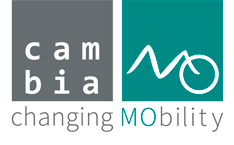This 18th and 19th of June, cambiaMO is organising the Kick/off Meeting of the new EU/funded project InclusiveSpaces | designs, tools, and frameworks for creating an accessible and inclusive built inclusive environment for all, for now, and for the future.
Within the Horizon Europe funding program, this project aims to design a more equitable, sustainable, and climate-change adaptive future. By redefining the way we approach and create our built environments through: Social Innovation, Universal Design, Inclusive Planning and Design Tools, Climate-Friendly Assistive Technologies, Standardization Frameworks, and On-site deployments in 6 European Countries.
Through these innovations, we aim to inspire tangible change, empower individuals in vulnerable situations, and foster a sense of belonging for all members of society while preserving our climate and the environment
This meeting will include a welcome session, introductions by the project coordinators and the EU project officer, and detailed presentations on the work packages (WPs). The first-day focus will be on WP1: Set the Ground & Socially Innovate, WP2: Innovate – Planning and Design Tools, and WP3: Innovate – Climate-Friendly Assistive Technologies. A World Café session will facilitate deeper discussions on methodologies and deliverables. The next day will feature presentations on WP5: Recommendations Frameworks and WP6: Communication, Dissemination & Exploitation, followed by a closing session to draft the project roadmap. The session will conclude with a steering meeting to discuss project progress, management updates, key risks, and required decisions.
cambiaMO is the coordinator of the Innovative Action InclusiveSpaces, and leads the innovation action work related to WP1 that sets the ground by conducting a comprehensive review and critical analysis of current accessibility-related practices and international regulations, engaging diverse communities and target groups through Communities of Practice (CoP), working towards a ‘design-for-all’ approach, and exploring future scenarios and implications for improved accessibility and inclusiveness of the built environment.







